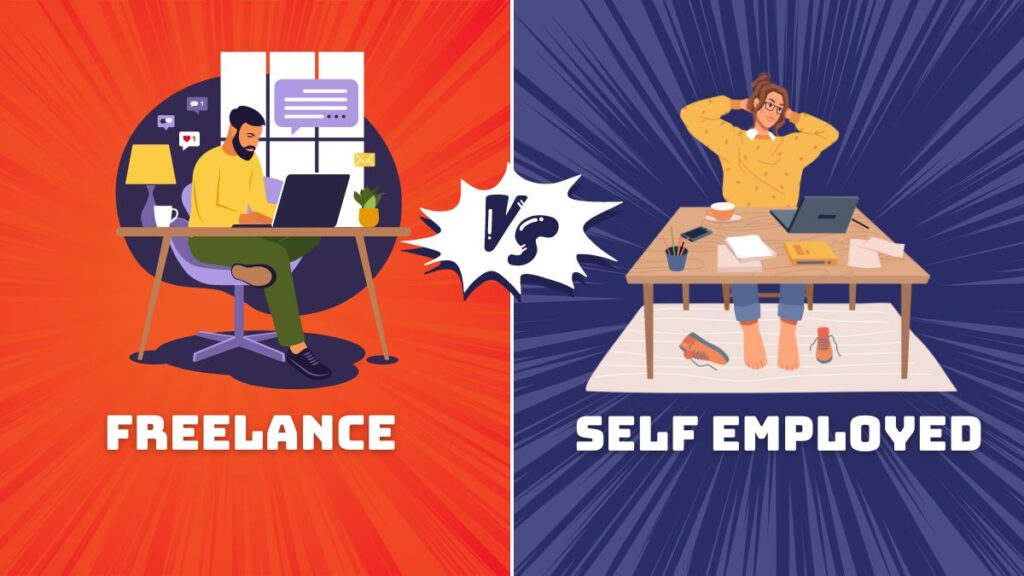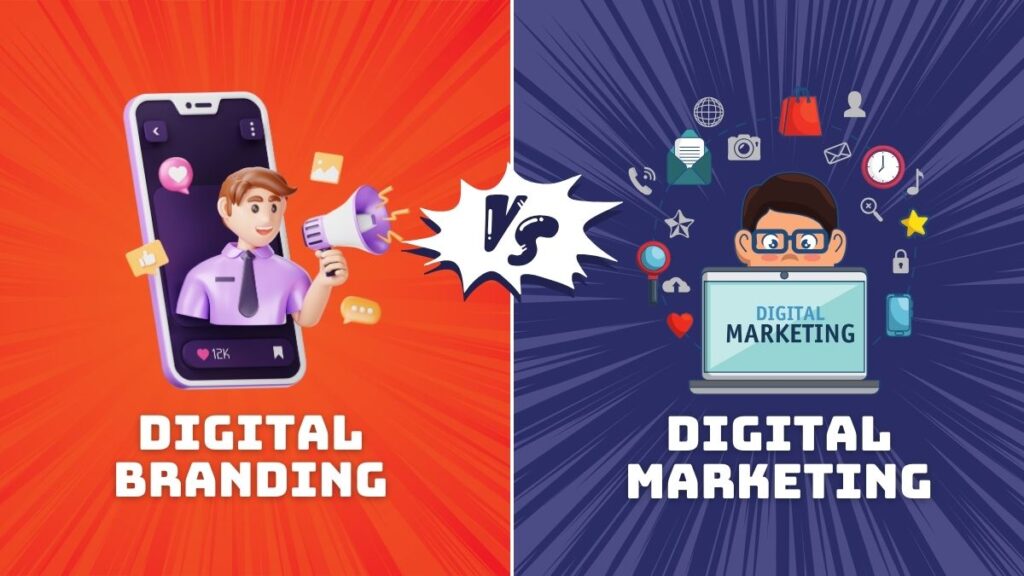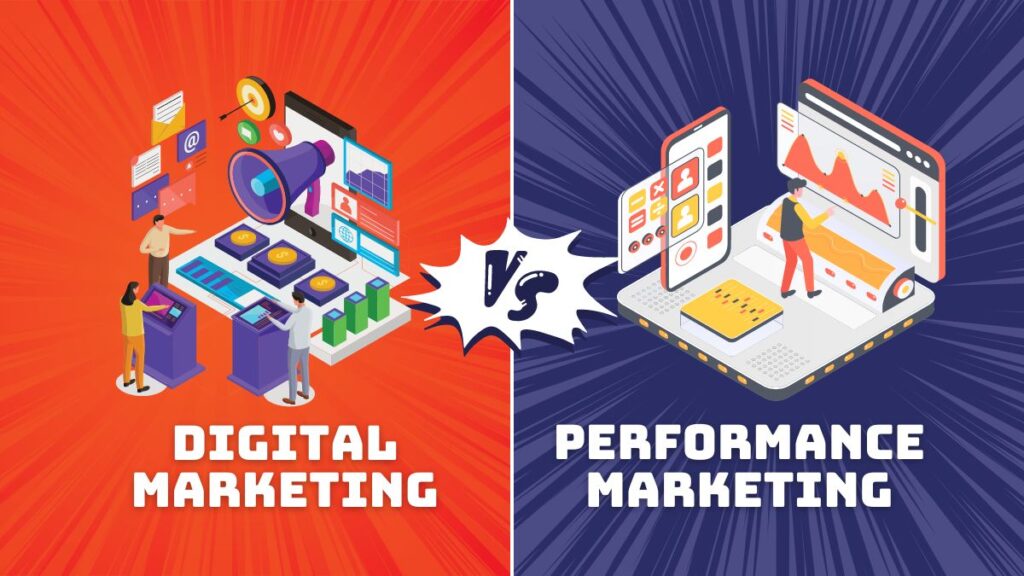Discover the key differences between freelance vs self employed. Learn which path suits your skills, goals, and lifestyle best in this simple guide.
you ever wondered what it’s like to chart your own course in the professional world? Freelancing and self-employment are like two roads leading to independence, but each offers a unique journey. One is like riding a roller coaster of exciting projects; the other is like steering a ship toward building your own empire.
With independent work booming—36% of the U.S. workforce freelances, contributing $1.2 trillion to the economy annually—there’s never been a better time to explore these paths.
Things we are going to cover
Ready to unlock your potential? Let’s explore!
What Is Freelancing?
Freelancers are self-employed individuals who take on short-term projects from various clients. Unlike traditional employees, freelancers don’t work for one company full-time. Instead, they get to choose which clients they work with and which projects to take on.
Why Freelancing Could Be a Great Option
If you want more freedom, flexibility, and the chance to work on different projects, freelancing could be a great fit. Let’s explore why it might be the right choice for you!
Work with Multiple Clients
As a freelancer, you have the opportunity to collaborate with different clients. This keeps your work interesting and offers new challenges with each project.
Set Your Own Schedule
Freelancing gives you the freedom to decide when and where you work. Whether you prefer early mornings or late nights, working from home or a café, the schedule is yours to manage.
Variety of Projects
One of the best parts of freelancing is the variety. You might design a logo one day, write a blog post the next, or help a client with social media. This keeps your work dynamic and exciting.
Build a Portfolio
Every project you complete adds to your portfolio. As you work with more clients and showcase your skills, your portfolio will help attract even more business opportunities.
Challenges of Freelancing
From finding clients to managing your own schedule, it’s not always easy. Let’s look at some of the main hurdles you might face.
Income Changes
Freelancing can lead to uneven income. Some months might be busy, while others could be slower. It’s important to manage your finances carefully, saving during busier times to cover the slower months.
Finding Clients
Freelancers are responsible for finding their own clients. This can involve networking, cold emailing, or using freelance platforms. It requires effort and persistence to build a steady stream of work.
Managing Deadlines
Since freelancers juggle multiple clients, managing deadlines can be tricky. Good time management and staying organized are key to ensuring you meet your commitments.
Staying Focused
Freelancing means you’re your own boss, but this can sometimes lead to distractions. Without coworkers or supervisors, staying motivated and disciplined is essential to staying on track.
Fun Fact! Did you know? 59 million people in the U.S. freelanced in 2020, and the number continues to rise! As more people look for flexible work options, freelancing is becoming a popular choice.
What Is Self-Employment?
Self-employment is when you own and operate your own business. Instead of working for someone else, you’re the boss. This means you’re responsible for everything from product creation to customer service. It’s a chance to bring your idea to life and build something that can last for years.
Why Self-Employment Might Be a Great Fit
If you want more control and flexibility, it might be the perfect choice. Let’s see why it could work for you!
Create and Manage a Brand
When you’re self-employed, you have the opportunity to build a brand that reflects your values and connects with customers. Your business story becomes part of your identity, and a strong brand can help you stand out in the market.
Potential for Long-Term Growth
Self-employment offers the chance for long-term success. You can expand your business over time and even build a legacy. Your business can grow from a small idea into a large operation with more employees and products.
Full Control Over Your Business
Being self-employed means you’re in control. You make decisions about everything—from what products or services to offer to how you interact with customers. It’s up to you to shape the direction of your business.
Challenges of Self-Employment
While being self-employed can be rewarding, there are some challenges to keep in mind:
Startup Costs
Starting a business often requires an investment. You may need to pay for equipment, inventory, or a workspace. It’s important to have the financial resources or savings to get started and keep your business running smoothly.
Business Planning and Management
A business needs careful planning and attention. As a self-employed person, you’ll need to manage all aspects of your business—whether it’s marketing, budgeting, or customer service. Having good management skills is essential for success.
Higher Risks, Higher Rewards
Running your own business means taking on more risk. There’s no guaranteed paycheck, and you’ll face challenges along the way. However, the potential rewards can be huge, as you’re the one who gets to enjoy the growth and success of your business.
Fun Fact! Did you know? Small businesses make up 99.9% of U.S. businesses? That shows just how important self-employment is to the economy. Many of these businesses are started by entrepreneurs just like you.
Freelance vs Self Employed
Not sure which one suits you? Let’s compare the two so you can make the best choice for your career and lifestyle.
| Aspect | Freelancing | Self-Employment |
|---|---|---|
| Definition | Work with multiple clients on short-term projects. | Own and operate a business offering products or services. |
| Work Structure | Contract-based, project-focused work. | Running a business with ongoing operations. |
| Clients | Multiple clients. | Typically one main business focus. |
| Schedule | Flexible, set your own hours. | Flexible, but more responsibility for business hours. |
| Earnings | Variable, can fluctuate based on workload. | More predictable, with steady income potential. |
| Responsibility | Manage own projects, client relationships, deadlines. | Oversee the entire business, from marketing to operations. |
| Risk Level | Lower financial risk but inconsistent income. | Higher risk due to setup and ongoing expenses. |
| Growth Potential | Limited to the clients you can manage. | Greater potential, including scaling the business. |
| Example | Freelance writer, graphic designer, consultant. | Small business owner, like a café or online store. |
Choosing the Right Path
Stuck between freelancing and self-employment? Let’s explore both options and find the path that aligns with your goals, skills, and lifestyle.
Skills and Interests
Freelancing: Great for people who like variety and working on different projects. You choose what you work on.
Self-Employment: Best if you want to create a business and have more control. It’s about building something from the ground up.
Risk
Freelancing: Less risky but your income can vary. Some months are busy, others slower.
Self-Employment: More risk but more potential for big rewards. You’re in charge of everything.
Money
Freelancing: Starting is cheap. You don’t need much—just a good computer and internet.
Self-Employment: Starting a business usually costs more. You may need money for things like products or employees.
Long-Term Goals
Freelancing: If you want flexibility and freedom, freelancing is great. But it’s harder to grow long-term.
Self-Employment: If you want to build something lasting, self-employment is the way to go. It’s a bigger commitment but offers more growth.
Lifestyle
Freelancing: Lots of freedom to work when and where you want, but it can be unpredictable.
Self-Employment: More responsibility and work, but you have control and can grow your business.
Freelance vs Self-Employed on Resume
When adding freelance or self-employed work to your resume, you want to clearly show what you’ve done and how it fits the job you’re applying for.
Freelancer
Talk about the projects you’ve worked on and what you accomplished.
For Example
Freelance Writer | June 2021 – Present
Wrote articles for websites, increasing traffic by 20%.
Self-Employed
If you ran your own business, highlight your role as the business owner.
For Example
Owner, XYZ Café | March 2018 – Present
Managed daily operations and grew customer base by 30%.
Freelance vs Self-Employed Salary
Not sure which path to choose? Let’s break down the key differences between freelancing and self-employment—especially when it comes to earning potential—so you can make an informed decision.
Freelancer Salary
As a freelancer, your income can vary depending on how many clients and projects you take on. It can be higher some months and lower others. Average freelance earnings are:
Self-Employed Salary
As a business owner, your income can be unpredictable, especially at first. With time, your earnings could grow, and some small business owners earn:
Freelance vs Self-Employed Tax
Freelancer Taxes
Freelancers are responsible for their own taxes. You’ll pay income tax and self-employment tax. You can also deduct things like your home office or business supplies.
Tip: Self-employed people often need help from an accountant to keep everything in order.
Self-Employed Taxes
Business owners pay similar taxes but may have more opportunities to deduct business expenses, like office rent or employee salaries. Keeping good records helps make sure you’re paying the right amount of taxes.
Tip: Freelancers need to pay taxes every quarter, not just at the end of the year.
How I Can Help
I’m here to help you decide whether freelancing or self-employment is the right choice for you. I’ll provide support and guidance to make the process easier. Here’s how I can help:
Freelancing Guidance
I’ll show you how to market your skills, find clients, and build a strong portfolio that attracts business. Freelancing can be flexible, and I’ll help you make it work for you.
Self-Employment Coaching
Starting your own business? I’ll guide you through everything—from planning and managing growth to handling your finances. I’ll make sure you have a clear path forward.
Practical Business Support
Starting out can be tricky. I’ll break it down into simple steps—helping you with budgeting, taxes, and organizing your business so it’s easy to manage.
Personalized Mentorship
No two paths are the same. Whether you’re just starting or looking to grow, I’ll give you advice that’s tailored to your needs and goals.
Financial Planning
Managing money is key when you’re freelancing or running a business. I’ll help you plan for taxes, handle fluctuating income, and stay financially organized.
Ongoing Support
I’ll be with you every step of the way. Whether you need advice or motivation, I’m here to support you as you grow your career.
Case Studies
Curious how others made the leap? Here are a couple of real-life stories of people who turned their dreams into successful careers with a little guidance and a lot of determination. Check out their journeys!
Emily – Freelancing in Graphic Design
Problem: Emily wanted to transition from a full-time job to freelancing in graphic design but wasn’t sure how to find clients.
Solution: I helped Emily set up a website, build her portfolio, and explore online platforms for freelance work.
Result: Emily now works with several clients, enjoys the flexibility of freelancing, and has built a steady income stream.
Tom – Starting a Fitness Coaching Business
Problem: Tom loved fitness but didn’t know how to turn it into a business.
Solution: I helped Tom create a business plan, market his services online, and manage his finances.
Result: Tom’s fitness coaching business is growing, and he has a loyal client base.
Why Choose Me?
Wondering why I’m the right fit for you? Here’s why working with me can help you turn your goals into reality and set you up for long-term success.
Simple, Clear Advice: I keep things straightforward so you know exactly what to do next.
Guidance Tailored to You: I take the time to understand your goals and help you make decisions that fit your vision.
Practical Help: I’ll help you avoid common mistakes and give you simple solutions for starting and growing your business.
Long-Term Support: I’m here for the long haul—offering advice and support as you continue to grow.
Proven Success: I’ve helped many people make the leap into freelancing and self-employment, and I’m confident I can help you too.
If you’re not sure whether freelancing or self-employment is the right fit, I’m here to help. Let’s talk and figure out the best path for you!
Conclusion
Freelancing and self-employment both offer great opportunities for independence. Whether you like working on different projects or want to build something bigger, pick the path that suits your goals. And remember, you can always switch paths as you grow!
Key Takeaways
Ready to get started? No matter if you choose freelancing or self-employment, I am here to help. Reach out today and let’s take your next step together!


